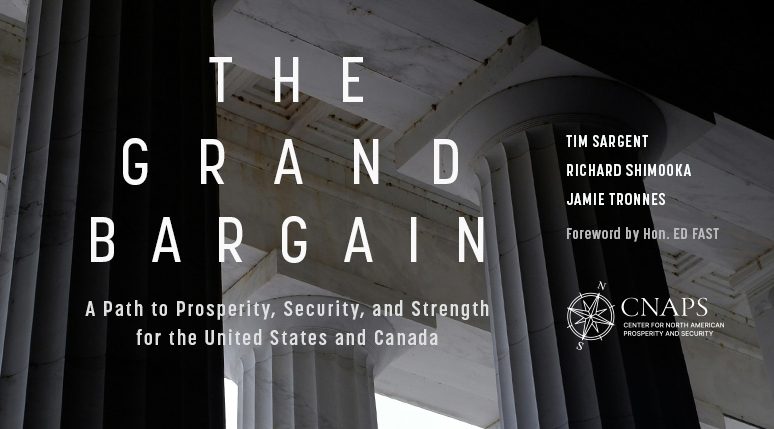By Tim Sargent, Richard Shimooka, and Jamie Tronnes
July 10, 2025
Foreword
Assessing the Feasibility of a United States-Canada Grand Bargain
With President Donald Trump firmly ensconced in his second term, Canada is once again facing a steady stream of tariffs and the looming threat of more. Canadian policy-makers are left to navigate an unpredictable and transactional US administration. Compounding the challenge, a formal review of the US-Mexico-Canada Agreement (USMCA) is imminent. How should Canada respond to what are expected to be fresh, one-sided demands from Washington?
The Center for North American Prosperity and Security (CNAPS) believes the moment calls for a broader rethinking, not just of Canada’s negotiating tactics, but of the very premise of re-opening USMCA. Just five years ago, the signatories touted the agreement as a source of long-term certainty. That promise has quickly eroded, with the Trump administration treating treaty commitments as optional and pushing for further concessions in sensitive areas like rules of origin, digital services taxes, and regulated sectors such as supply management, telecoms, airlines, and banking. Within the narrow framework of USMCA, Canada holds few effective bargaining chips.
But what if there were another path?
Rather than engaging in another round of asymmetrical USMCA renegotiation, Canada could push for a Grand Bargain – a more ambitious, comprehensive negotiation that incorporates many unresolved bilateral issues and shared opportunities. Such an agreement could include areas like critical minerals and energy, border and continental security, defense spending, softwood lumber, food and water security, cross-border infrastructure, and regulatory alignment.
A broader agreement might give Canada the leverage needed to achieve more balanced outcomes. It could also include stronger enforcement and legislative lock-in provisions to ensure long-term compliance, something the current USMCA lacks.
To explore the viability of this approach, CNAPS and the Macdonald-Laurier Institute propose launching a Grand Bargain Study. This study will rigorously assess the risks, opportunities, and strategic implications of a broader Canada-US negotiation. Our goal is to equip decision-makers on both sides of the border with the insights they need to pursue a truly win-win path forward.
– Ed Fast Former Minister of International Trade, Canada, and Distinguished Fellow, Macdonald-Laurier Institute.
Read the full paper here:









